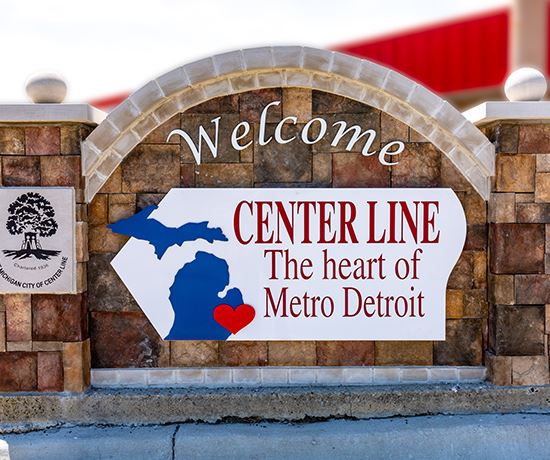As Public Spaces Disappear, Michigan Communities Worry About Social Ties
“It’s just an utterly critical part of what makes a city or a community function.”

When we think of home, we don’t just think of the house where we live. We also think about a community park, recreation center or a coffee shop in the places we call home. They’re the spots that make your neighborhood feel like yours.
But, what happens in a community when these kinds of public spaces start to go away?
“Just yesterday when I was out doing my Christmas lights I could hear the bells at the church, and I’m thinking, what if I never heard that again?” – Center Line Mayor Bob Binson
Crossing the Lines
101.9 WDET’s Crossing the Lines series explores what unites the Metro Detroit region and what divides it.
Why Center Line? The city is a community with a deep history as well as a significant shift in diversity over the past 20 years. See more coverage
These are trends and concerns that can be found across the region, state, and country — and they’re not new. Throughout the past century, threats to public spaces have been concerns, especially in disadvantaged communities.
“It’s just an utterly critical part of what makes a city or a community function,” says David Dudley, executive editor of CityLab. “When municipal entities aren’t in a position to provide true public space, the market will step in. And these aren’t really true public space in the traditional sense.”
Center Line is a small city in Macomb County, just north of Detroit, and in recent years there has been a loss of public spaces for that community including its 154 year old Catholic school and the community’s only coffee shop.
As part of WDET’s “Crossing The Lines” series in Center Line, Detroit Today looks at the places that foster community and what happens when they’re gone.
“The Christmas tree sales went away, the pancake breakfast went away, all that stuff that brought the community together.” – Center Line Mayor Bob Binson
“We’re a tight knit community and we like to hang out together,” says Center Line Mayor Bob Binson tells Stephen Henderson.
He talks about the decline of community events and groups hosted by St. Clement Catholic Church in recent years and what that has meant for the city.
“The Christmas tree sales went away, the pancake breakfast went away, all that stuff that brought the community together,” Binson says. “People started moving away from the church when that happened, and I think that happens in a lot of communities.”
“Just yesterday when I was out doing my Christmas lights I could hear the bells at the church, and I’m thinking, what if I never heard that again? How would that affect the community?”
Binson and other officials say there are still places, such as the city’s public parks and library, where people can and do gather. They hope businesses will move in to further fill the need for common meeting places.
“I’ve lived in Center Line for 66 years, my entire life,” says Jan Ornsten, a member of the city’s Downtown Development Authority. “We have a few empty buildings on Van Dyke. I’d like to see retail stores opening to bring in a little extra cash for the businesses and things for people to do.”
